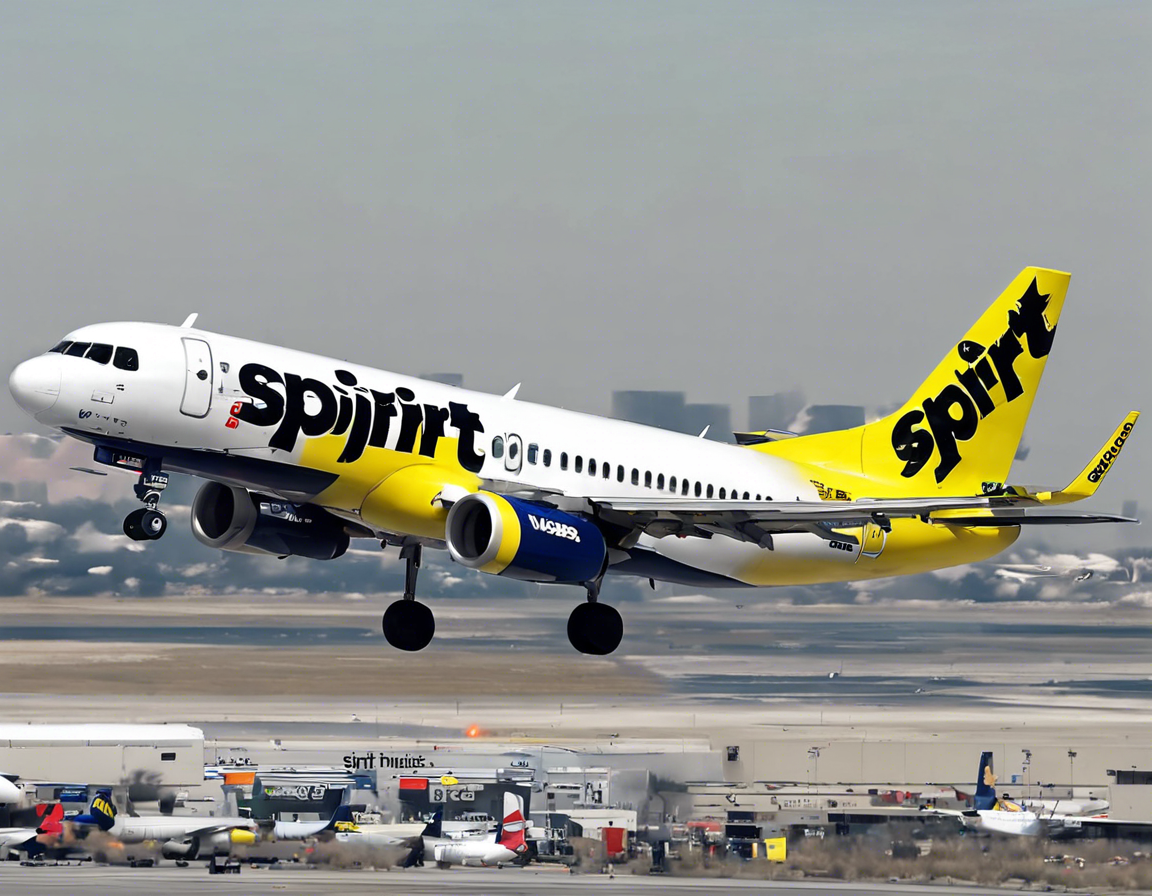Concerns Emerge Over Spirit Airlines Child Wrong Flight Incident
The recent incident involving a child boarding the wrong flight on Spirit Airlines has sparked concerns and brought to light the importance of ensuring accountability and safety in air travel, especially for minors. The incident, which took place on a flight from Orlando to Atlantic City, saw a five-year-old child being mistakenly placed on the wrong aircraft, causing distress for the child and his family. This unfortunate event raises questions about the protocols and procedures in place to prevent such occurrences and the responsibility of airlines in safeguarding the well-being of their passengers, particularly children flying alone.
Understanding the Incident
On August 17, 2021, a young child traveling as an unaccompanied minor was meant to board a Spirit Airlines flight from Orlando, Florida, to Atlantic City, New Jersey. However, due to a mix-up by airline staff, the child was directed onto the wrong plane, which was heading to an entirely different destination – New York’s LaGuardia Airport. The error was only discovered mid-flight when the child’s family arrived to pick him up in New Jersey, prompting distress and confusion for all involved parties. The child was safely returned to his family later that day, but the incident highlighted serious gaps in the airline’s handling of unaccompanied minors and raised concerns about the potential risks and consequences of such mistakes.
Protocols for Unaccompanied Minors
When children travel alone, airlines have specific protocols and procedures in place to ensure their safety and well-being throughout the journey. Parents or guardians are typically required to pay an additional fee for unaccompanied minor services, which include personalized assistance and supervision from airline staff. Before departure, children are checked in by designated personnel, provided with identification tags, and escorted to the gate for boarding. Upon arrival, children are handed over to authorized individuals with matching identification, ensuring a secure transfer of responsibility.
Lapses in Safety Measures
The incident involving the child on the wrong Spirit Airlines flight has raised questions about the effectiveness of safety measures and oversight in place for unaccompanied minors. The miscommunication or negligence that led to the child’s boarding error underscores the need for improved training for airline staff, clearer identification procedures, and stringent verification processes to prevent such incidents from occurring in the future. The well-being and security of passengers, especially vulnerable populations like children traveling alone, should be a top priority for airlines, necessitating a thorough review of existing policies and a commitment to upholding the highest standards of care.
Repercussions and Accountability
In the aftermath of the Spirit Airlines incident, there have been calls for greater accountability and transparency from the airline regarding the circumstances that led to the child boarding the wrong flight. Passengers, advocacy groups, and regulatory bodies are demanding a full investigation into the incident, as well as assurances that corrective actions will be taken to prevent similar occurrences. Airlines must take responsibility for their mistakes and demonstrate a commitment to learning from such incidents to ensure the safety and trust of their passengers.
Ensuring Passenger Safety and Confidence
Air travel, while generally safe, is not without risks, and incidents like the one involving the child on the wrong Spirit Airlines flight highlight the importance of robust safety measures and vigilant oversight by airlines. Passengers, particularly parents of unaccompanied minors, rely on airlines to prioritize their well-being and provide a secure and reliable travel experience. By reinforcing training, enhancing communication channels, and implementing stringent checks and balances, airlines can instill confidence and peace of mind among passengers, reaffirming their commitment to safety and customer satisfaction.
Conclusion
The recent incident on Spirit Airlines, where a child boarded the wrong flight, serves as a wake-up call for the aviation industry to reevaluate its procedures and safeguards for unaccompanied minors and passengers in general. Airlines must prioritize safety, accountability, and transparency to prevent lapses in communication and ensure incidents like this do not recur. By learning from such events and implementing corrective actions, airlines can strengthen their commitment to passenger welfare and uphold the trust and confidence of the flying public.
Frequently Asked Questions (FAQs)
- How common are incidents of passengers boarding the wrong flight?
-
While rare, incidents of passengers boarding the wrong flight do occur sporadically due to human errors or miscommunication.
-
What measures can airlines take to prevent passengers from boarding the wrong flight?
-
Airlines can implement stringent verification procedures, provide clear communication to passengers, and enhance staff training to minimize the risk of boarding errors.
-
What should passengers do if they suspect they are on the wrong flight?
-
Passengers who suspect they are on the wrong flight should notify airline staff immediately to rectify the situation and prevent any further complications.
-
Are there specific guidelines for unaccompanied minors traveling by air?
-
Yes, airlines have specific protocols and services for unaccompanied minors, including supervised assistance throughout their journey to ensure their safety and well-being.
-
How can parents ensure their children’s safety when flying alone?
-
Parents should thoroughly review the airline’s unaccompanied minor policy, provide detailed instructions to their children, and verify that all necessary arrangements have been made before the flight.
-
What repercussions do airlines face for boarding errors involving passengers, especially minors?
-
Airlines may face legal consequences, fines, reputational damage, and regulatory scrutiny for boarding errors that compromise passenger safety and security.
-
Is it advisable for children to travel alone on airlines, considering incidents like the Spirit Airlines mix-up?
-
While solo travel for children is common and generally safe, parents should weigh the risks and benefits, choose reputable airlines, and communicate openly with their children about safety measures.
-
What changes can airlines make to improve the handling of unaccompanied minors?
-
Airlines can enhance staff training, implement technology solutions for tracking minors, establish clear communication channels with parents, and conduct regular audits of unaccompanied minor procedures.
-
How can passengers advocate for better safety measures and accountability in air travel?
-
Passengers can voice their concerns through feedback to airlines, engage with consumer advocacy groups, and report incidents to relevant regulatory authorities to drive positive change in the industry.
-
What role do regulatory bodies play in ensuring the safety of passengers on commercial flights?
- Regulatory bodies set and enforce safety standards, conduct inspections, investigate incidents, and hold airlines accountable for complying with regulations to safeguard passengers’ well-being and rights.
His love for reading is one of the many things that make him such a well-rounded individual. He's worked as both an freelancer and with Business Today before joining our team, but his addiction to self help books isn't something you can put into words - it just shows how much time he spends thinking about what kindles your soul!




